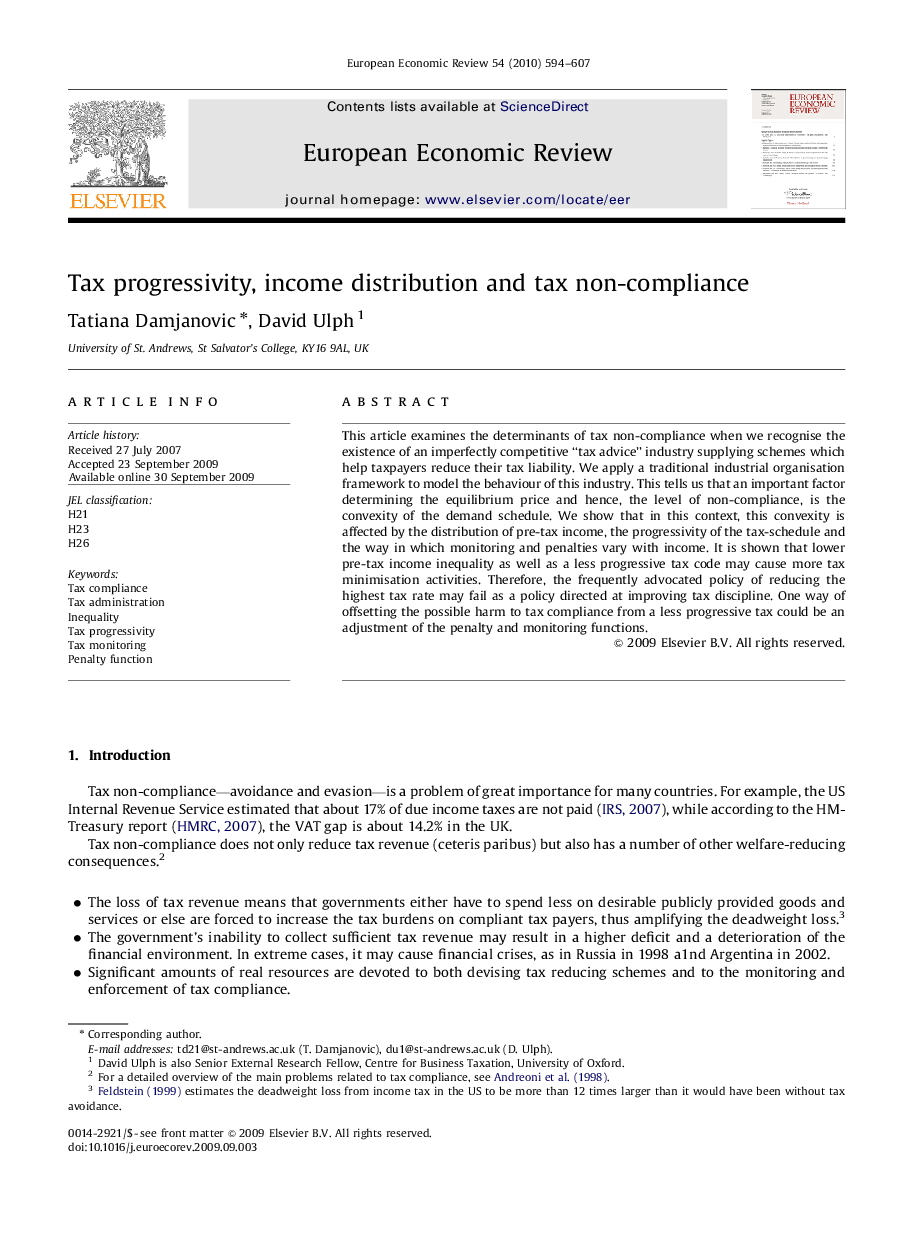| Article ID | Journal | Published Year | Pages | File Type |
|---|---|---|---|---|
| 5067327 | European Economic Review | 2010 | 14 Pages |
Abstract
This article examines the determinants of tax non-compliance when we recognise the existence of an imperfectly competitive “tax advice” industry supplying schemes which help taxpayers reduce their tax liability. We apply a traditional industrial organisation framework to model the behaviour of this industry. This tells us that an important factor determining the equilibrium price and hence, the level of non-compliance, is the convexity of the demand schedule. We show that in this context, this convexity is affected by the distribution of pre-tax income, the progressivity of the tax-schedule and the way in which monitoring and penalties vary with income. It is shown that lower pre-tax income inequality as well as a less progressive tax code may cause more tax minimisation activities. Therefore, the frequently advocated policy of reducing the highest tax rate may fail as a policy directed at improving tax discipline. One way of offsetting the possible harm to tax compliance from a less progressive tax could be an adjustment of the penalty and monitoring functions.
Related Topics
Social Sciences and Humanities
Economics, Econometrics and Finance
Economics and Econometrics
Authors
Tatiana Damjanovic, David Ulph,
